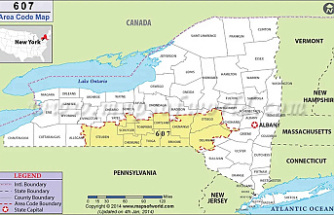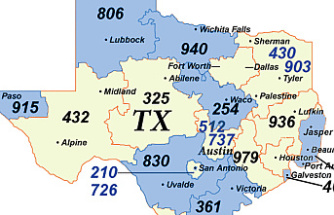A majority of City Council members said Monday they want the state to give control of the Baltimore Police Department to local officials, part of a series of actions they think will help stem the tide of violence.
Councilman Brandon Scott said local elected leaders should not have to appeal to state lawmakers to adjust police policies and practices, such as setting up a community policing steering committee or redrawing the police district boundaries.
"The citizens of Baltimore think the City Council can change laws and enact policy," Scott said. "The citizens of Baltimore hold us responsible. ... Why should the city of Baltimore be at the beck and call of the 90-day General Assembly?"
The council passed a resolution calling on the legislature to pass a bill that would transfer control. Scott said the Baltimore Police Department was founded as a state agency to provide a militia for Maryland and is the only local department controlled by the state.
Baltimore Del. Curt Anderson is sponsoring the bill in Annapolis.
"I don't think it's the right thing for folks who live in Baltimore City to drive to Annapolis to affect change in the Baltimore City Police Department," said Anderson, a Democrat.
Baltimore's members of the House of Delegates unanimously endorsed a bill Friday that would require the city police department to conduct a long-sought review of its district boundaries and repeat the process every 10 years, after the Census.
The districts are one of the basic building blocks of...
Baltimore's members of the House of Delegates unanimously endorsed a bill Friday that would require the city police department to conduct a long-sought review of its district boundaries and repeat the process every 10 years, after the Census.
The districts are one of the basic building blocks of...
Anderson acknowledged that some are concerned that making the change could interfere with the newly negotiated U.S. Department of Justice consent decree. He said he is awaiting legal opinions on the question. The agreement between the city and Justice Department will ultimately lead to a court monitor overseeing reforms in the Police Department.
A hearing on the state legislation is scheduled for March 10.
Thirteen of the council's 15 members joined Scott and Anderson for a news conference Monday.
Anderson said Mayor Catherine Pugh, a former state senator, has told him she is worried about how the bill could affect the consent decree. But Anderson said the legislation should move forward, saying "We're still in a period of time here in Baltimore when we're having almost a murder a day."
In a historic agreement, the city of Baltimore and the U.S. Department of Justice signed a consent decree Thursday that will commit the city to sweeping police reforms aimed at restoring community trust in city cops, and ensuring that they conduct everyday police work within the bounds of the Constitution.
In a historic agreement, the city of Baltimore and the U.S. Department of Justice signed a consent decree Thursday that will commit the city to sweeping police reforms aimed at restoring community trust in city cops, and ensuring that they conduct everyday police work within the bounds of the Constitution.
So far this year, more than 50 people have been killed in the city.
Scott, chairman of the council's public safety committee, is also pushing state legislation that would create a steering committee to develop community policing efforts and reset police district boundaries to adjust the distribution of resources for the first time since 1959.
A spokesman for Pugh said the mayor is disappointed that Scott has not spoken to the mayor about his efforts, specifically about the bill to transfer control of the police department. She has an open door policy that offers council members the chance to talk to her about their ideas.
"Councilman Scott has not spoken to the mayor about any legislation regarding the Baltimore City Police Department or its financial implications for the department or the City," Pugh spokesman Anthony McCarthy said in a statement. "She finds the lack of communications on such important matters to be disrespectful."
Scott said pushing for passage of the bill is not personal or a matter of the council versus the mayor.
"This is about what's right for the city of Baltimore," Scott said.
Ray Kelly, an organizer with the West Baltimore group No Boundaries Coalition, said Baltimore residents need a chance to have a greater voice in the future of the police department. Moving control to city officials would help facilitate that, he said.
"If we are truly committed to healing our communities and city, and moving forward, we must first commit to taking the necessary steps to take ownership of our own issues and begin the process of change, right here, together," Kelly said.
The group is planning to send about 30 people to Annapolis on Friday to urge Baltimore lawmakers to support the bill. They also organized a Change.org petition to call for the passage of police reforms.
On a related matter, City Council President Bernard C. "Jack" Young is calling for police to come before the council's Judiciary and Legislative Investigations Committee to examine staffing issues in the agency.
Young said he wants to hear about the police department's recruitment and officer retention efforts. He said he also wants information about how many officers, once trained, leave the agency for other departments and how the city can recoup the money spent training them.
"In order to get a handle on the crime in the city, we need to have more boots on the ground," he said.
Young said he also plans to take issue with the existing police contract with the union that allows for a schedule of four working days and three days off per week. He also plans to press for more federal law enforcement help in Baltimore. He wants to ask for the FBI to help track how guns are entering the city.
Police spokesman T.J. Smith said department officials readily welcome the chance to discuss important matters with the council.
"Just last week, the Commissioner spent four hours with the Public Safety Committee," Smith said.
Among the items to be discussed in response to Young's request are the department's recruitment efforts, such as a police explorers program and trip last year to Puerto Rico to hire more Spanish-speaking officers.
It costs $25,000 to put an officer through the police academy. When recruits graduate, they commit to working for the department for three years. Operating the training academy costs $7.6 million a year.
Baltimore Sun reporter Luke Broadwater contributed to this article.
ywenger@baltsun.com
twitter.com/yvonnewenger
Our editors found this article on this site using Google and regenerated it for our readers.












